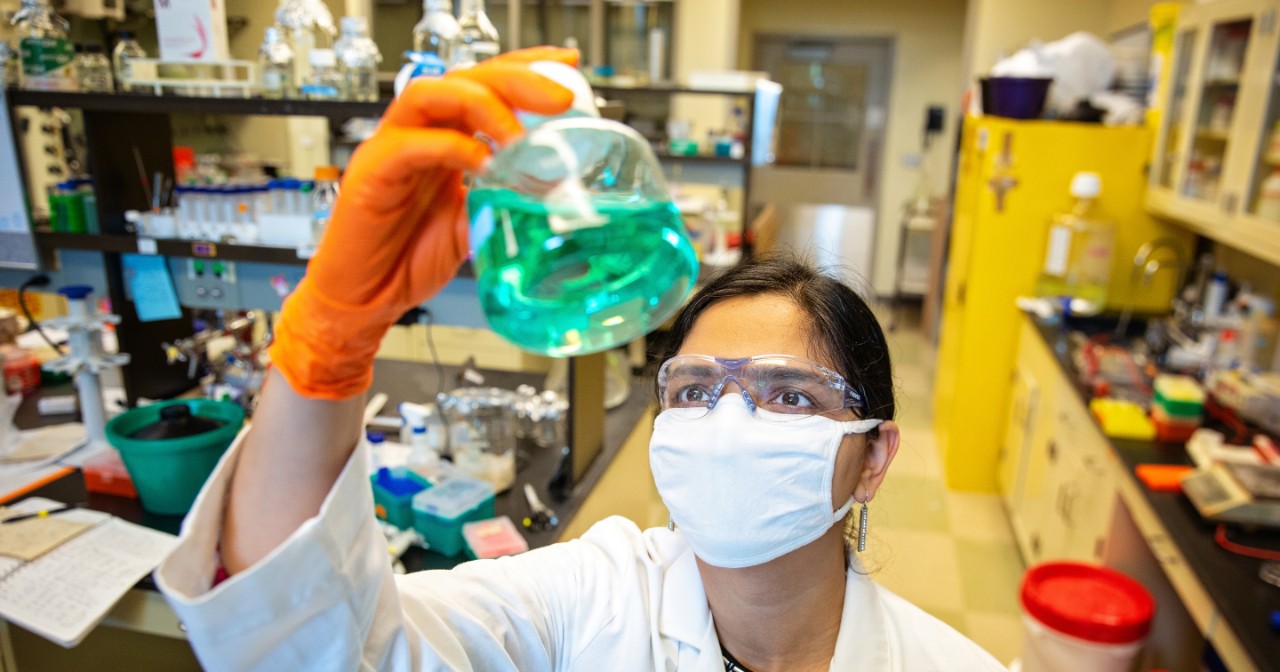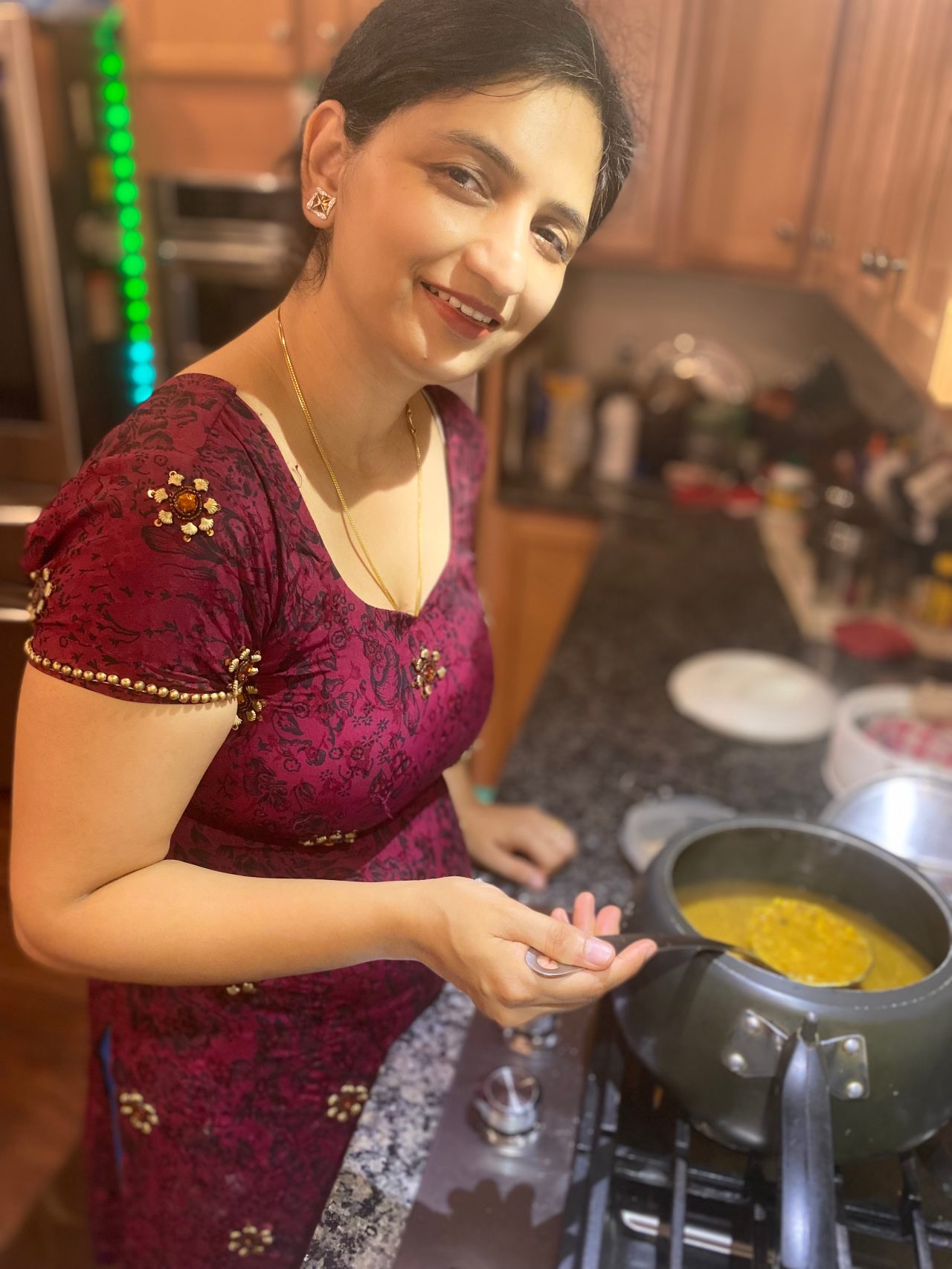
Category: Humans of Health Sciences

Mona Batish, Humans of Health Sciences
August 25, 2021 Written by Nicolette Jimenez and Ashley Barnas | Photo by Ashley Barnas
Medical & Molecular Sciences
Associate Professor
"I grew up in a very educational kind of environment - my mom was a math teacher for 23 years. I always wanted to be a doctor and I studied to go to med school. One day, I was really sad because I had a low rank in one of the exams. Then somebody told me, ‘You know what doctors do? Scientists tell them and they just do it!’ I decided I’m going to become a person who tells a doctor what to do. Doctors just prescribe what is being told to them by research - years and years of research.
I'm a very interdisciplinary person. My undergrad was in microbiology, then I did molecular biology, then I ended up in a cell biology lab. My Ph.D. was in neurobiology. Basically, wherever there is RNA, which is in every living thing - I do that.
When COVID-19 hit, it was really bad because you can't pause research. There were experiments that were running for months and suddenly we were told to turn off everything. I had to generate really important preliminary data for a grant but there was not enough time, so I had to go without it. I review a lot of grants and knew it would come back from the review board saying they want to see the data. That's exactly what happened. They said it was a great idea, but they wished there was some proof of principle.
I was really sad and talking to my mom about it, but said, ‘Well, everyone is in it together.’ But she says, ‘No, we are all in this storm together. But just think how lucky you are. You're not getting COVID. You have all the resources to survive it. But there are people who are suffering more than you. People are losing their lives. There are people who have nothing to hold onto. So don't say we are in the same boat, say we're in the same storm. Some have boats, some have ships, and some have just a plank to hold onto.’ That really changed my mind when I thought of it from that angle. Nobody in my family got COVID, so I'm very blessed. When you put it into perspective, losing research time is not really that big of a deal.
Science is so frustrating, but there is this desire that keeps you going. It’s this excitement that we're doing something new, something that nobody can do, and we're going to find an answer that everyone is looking for. That drives me.
But every little thing takes forever. If you do 100 experiments, 95 of them will not work. Persistence and determination are my best qualities. I have never given up on anything in my life yet, no matter what it is: science, life, career.
The NIH started a program called the Early Independence Award - the ‘skip the post-doc award.’ I got the special grant, so I was a graduate student one week and faculty the next. I gave birth to my first son a week after I got that grant, so it was crazy. I felt like a star. And I'm having a baby.

It's very challenging for a woman to stay in a research career. I have two kids. It's hard because the age that is supposedly a reproductive age is also a productive age in science. I delayed a bit, but how much can you delay having kids? And you can’t delay your career, right? My only regret would be not spending more time with them, rather than saying I wish I would have delayed having them. But that's the challenge of life, being a woman.
My husband is also in research, and we have this funny thing in our house that if I'm making a very elaborate dish and we're having fancy dinner, that means my science is not working. I have to feel accomplished somewhere, right? I love cooking. So when nothing is working in the lab, I'll go home, pick the hardest recipe and spend hours in the kitchen. Then, if my husband doesn't get good food for a few weeks, he goes, ‘Are we getting a grant?’ It’s really funny - my kids can sense if I'm making fancy foods for them, they say, ‘Aw, mom. What happened?’ Cooking is my way of balancing my mind. I'm very competitive. ‘Competitive’ is a negative word but I like to get this instant gratification in whatever I do.
No matter what happens, if you give your 100%, then you don't even feel so bad about failure. The worst feeling is when you have not given your 100% and you don't get what you wanted and keep regretting, ‘I wish I had done that little extra bit.’
With my second baby, I ended up having a VBAC, which I think is my proudest moment. Unless I get a Nobel Prize one day - till then, this is my Nobel Prize. Whenever anything sucks in the lab, I remind myself I got to do that. I can do anything."
